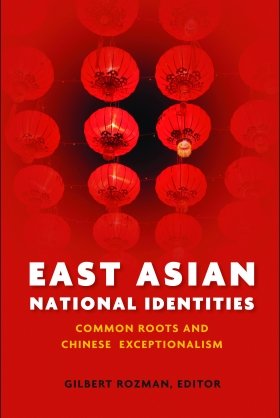East Asian National Identities: Common Roots and Chinese Exceptionalism

-
This rigorous comparative study of national identity in Japan, South Korea, and China examines countries with long histories influenced by Confucian thought, surging nationalism, and far-reaching ambitions for regional importance. East Asian National Identities compares national identities in terms of six dimensions encompassing ideology; history; the salience of cultural, political, and economic factors; superiority as a model national community; displacement of the U.S. in Asia; and depth of national identity. Through this analysis, Gilbert Rozman draws the three countries together in an East Asian National Identity Syndrome. Other contributors review historical sources and critical themes of identity in all three countries. Contributors include professors of sociology, international relations, and political science in the United States, Japan, South Korea, and China.
This book, the first of three volumes edited by Gilbert Rozman for Woodrow Wilson Center Press and Stanford University Press, is followed by National Identities and Bilateral Relations: Widening Gaps in East Asia and Chinese Demonization of the United States (2013) and The Sino-Russian Challenge to the World Order: National Identities, Bilateral Relations, and East versus West in the 2010s (2014).
Gilbert Rozman is the Musgrave Professor of Sociology at Princeton University. He was a Fellow at the Woodrow Wilson Center in 2010–11.
Editor
 Gilbert RozmanEmeritus Musgrave Professor of Sociology, Princeton University; Editor-in-Chief, The Asan ForumBrowse Insights & Analysis
Gilbert RozmanEmeritus Musgrave Professor of Sociology, Princeton University; Editor-in-Chief, The Asan ForumBrowse Insights & AnalysisExplore More
Browse Insights & Analysis
Preserving Cultural Heritage in Syria through War and Transition
Posted date/time:
Africa Year In Review 2024: From Headlines to Trendlines
Duration:32:00Posted date/time:
Serious Games: The Past, Present, and Future with Lindsay Grace
Duration:18:12Posted date/time:
Inversiones de impacto para la innovación social con Nat Ware en Tres Respuestas con Iván Duque
Duration:37:36Posted date/time: